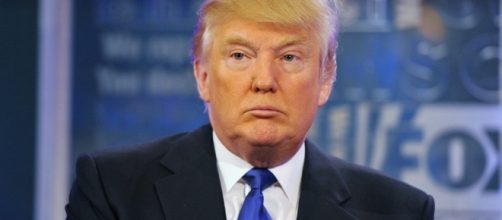Donald Trump has not yet taken possession of the White House, but he already boasts of it: his election has restored confidence to thousands of American businesses, strengthened consumption and prevented corporate relocations. American automaker Ford gave him more arguments by canceling on Tuesday the construction of a factory in Mexico to invest in the United States and create 700 jobs, giving a "vote of confidence" to the economic agenda of the future American president.
In December, it was an automaker American Carrier air-conditioner manufacturer that held 1,000 jobs in the United States instead of transferring production to Mexico after an agreement with Trump and $7 million in tax exemptions.
"They've seen what's happening ... and that's because we're not even in office!" declared the future president, who won the White House with the promise of attracting jobs and factories to the United States.
His election has pushed markets up and the Dow Jones has hit record highs since the November 8 election, contradicting forecasts of an economic slump in the event of a tycoon's victory in politics. "Before getting a chance to be elected, no one was paying attention to their program, which is precisely what companies want: a lot of deregulation and tax cuts," said Aparna Mathur of the conservative analysis American Enterprise Institute. Since Wall Street realized this, it maintained its main index near the symbolic level of the 20,000 units.
'Thank you, Donald!'
Several economic analysts point to a return of optimism to the United States. According to a poll by the Federal Reserve of Philadelphia in December, the proportion of companies that believe in the future has doubled in one month and consumer confidence is the highest in 15 years. "Thank you, Donald!" He thanked the president-elect. His unprecedented Twitter-driven strategy for large industrial groups (General Motors, Ford, Toyota) to invest in the United States seems to have borne fruit.
"For him, the campaign continues, and that makes him look like someone whose job is really a priority," says Mathur, adding that Trump should move to more traditional behavior when he is in the White House.
The optimism of US business environments is also explained by a political fact unrelated to Donald Trump's personality: for the first time since 2010, the White House and the two houses of Congress have come up with a common banner.
Uncertainty
"There is a general feeling that more can be done now that the US government is unified behind the Republican Party," Mark Zandi, chief economist at risk rating agency Moody's, told AFP. During the presidency of Barack Obama, the Democrat and Republican-dominated Congress did not stop confronting, causing serious budgetary crises and preventing any tax reform in the companies, discredited in all the parts.According to experts, much remains to be done to transform the small enthusiasm of which the president benefits in a lasting impetus and in this context the doubts are still many.
Trump promised a vast plan of diffuse contours and in December the Federal Reserve spoke of "considerable uncertainty" about the next government's program.Finally, the trade war that Trump promised to wage against China and Mexico could change the mood of the American multinationals, which depend on many of their activities abroad, while the appreciation of the dollar will increase its exports. "You have to wait and see what he has in mind," Zandi said.Former White House adviser to Barack Obama, Jared Bernstein is blunter and predicts a difficult future if Trump implements its deregulation and tax cut program. "Those who do not suffer from economic amnesia will remember what caused the financial crisis," he said.

